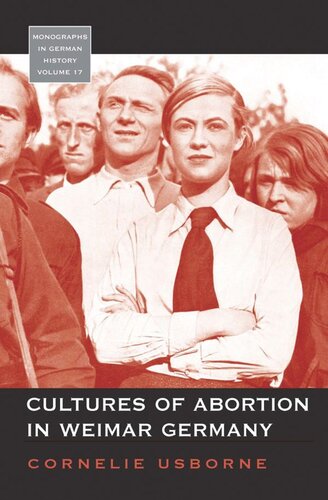

Most ebook files are in PDF format, so you can easily read them using various software such as Foxit Reader or directly on the Google Chrome browser.
Some ebook files are released by publishers in other formats such as .awz, .mobi, .epub, .fb2, etc. You may need to install specific software to read these formats on mobile/PC, such as Calibre.
Please read the tutorial at this link: https://ebookbell.com/faq
We offer FREE conversion to the popular formats you request; however, this may take some time. Therefore, right after payment, please email us, and we will try to provide the service as quickly as possible.
For some exceptional file formats or broken links (if any), please refrain from opening any disputes. Instead, email us first, and we will try to assist within a maximum of 6 hours.
EbookBell Team

4.8
54 reviewsAbortion in the Weimar Republic is a compelling subject since it provoked public debates and campaigns of an intensity rarely matched elsewhere. It proved so explosive because populationist, ecclesiastical and political concerns were heightened by cultural anxieties of a modernity in crisis. Based on an exceptionally rich source material (e.g., criminal court cases, doctors’ case books, personal diaries, feature films, plays and literary works), this study explores different attitudes and experiences of those women who sought to terminate an unwanted pregnancy and those who helped or hindered them. It analyzes the dichotomy between medical theory and practice, and questions common assumptions, i.e. that abortion was “a necessary evil,” which needed strict regulation and medical control; or that all back-street abortions were dangerous and bad. Above all, the book reveals women’s own voices, frequently contradictory and ambiguous: having internalized medical ideas they often also adhered to older notions of reproduction which opposed scientific approaches.